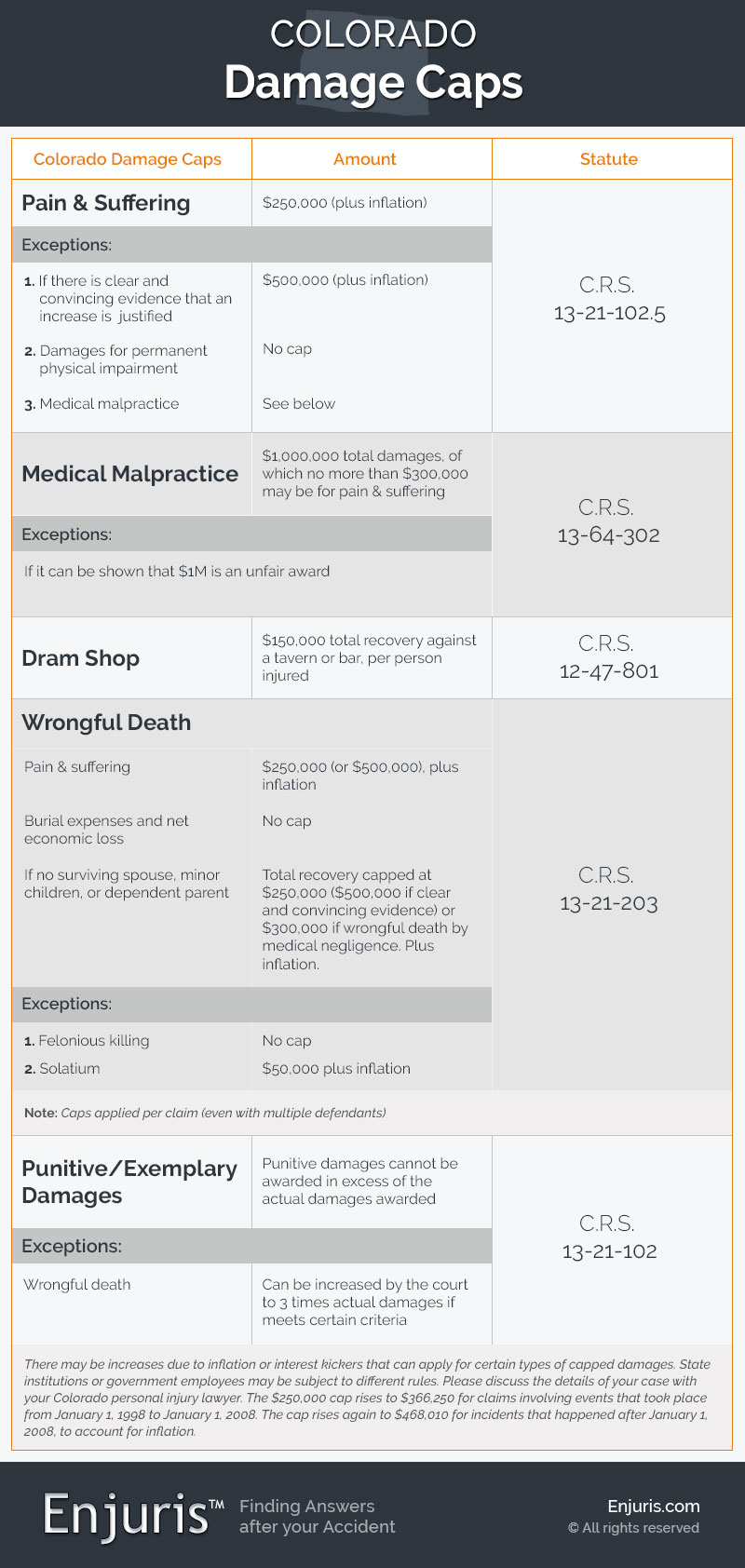Damages You Can Seek After Your Colorado Car Accident
Our Denver car accident attorneys have extensive experience handling injury cases. It doesn’t matter if you have a minor scrape or a major collision, we are here for you.
From medical bills to loss of income, learn about the types of compensation
that car accident victims can seek
In the months following a car accident, particularly one that has left you with stacks of medical bills, you’ll likely want to know how you can be compensated for what you’re going through. You may also be wondering exactly what types of damages you have the right to pursue.
For folks who live in the state of Colorado, these are the kinds of damages people often request and receive in car accident cases. Before you move forward with your car accident claim, it may be helpful to list everything you’re concerned about into a single list so that you can put them in one of the following categories.
Compensatory Damages
Compensatory damages, sometimes referred to as “actual” damages, are paid to make up for the loss of something. Compensatory damages can be further divided into two sub-categories: economic and non-economic.
Economic Compensatory Damages
The most direct and obvious form of economic compensatory damages is payment of medical bills. To determine what is owed to you for medical care, you must itemize everything that went into helping you try to recover from the accident. These items may include the costs of:
- Emergency response services
- Surgeries
- Physical therapy
- Hospital stays
- Home health care
- Medications and other prescriptions, such as crutches and medically necessary meals
It is important to know the full extent of your injuries and medical expenses before filing an injury claim or making a demand for payment to an insurance company. Under Colorado’s statute of limitations, an injured party has three years from the date of the car accident to file a claim. However, you should also bear in mind that if a product liability claim is part of your case, such as a defective seatbelt or vehicle part, you only have two years to pursue that cause of action.
Other types of compensation for economic compensatory damages include:
- Loss of income. You have a legal right to compensation for the wages you would have made had you not been injured. Evidence of earning capacity will have to be presented.
- Damaged or destroyed property. Plaintiffs may seek compensations for the price of replacing a vehicle and any belongings that were in it at the time of the accident.
- Legal expenses. If a judgment or settlement comes down in your favor, you have the right to seek reimbursement for the expenses associated with filing a lawsuit, including your lawyer’s fees.
Non-economic Compensatory Damages
Certain non-economic injuries are also compensable in the state of Colorado. These include more abstract, but just as serious injuries such as:
- Pain and suffering. Clients are encouraged to maintain journals where they document their pain from each day.
- Emotional distress. You can seek compensation for the immediate trauma of being in an accident and any lingering anxieties, fears or depression that might have followed.
- Loss of enjoyment. Losing the ability to enjoy life is compensable. This includes the capacity to participate in sports and hobbies. It also includes losing the ability to have intimate relations, especially with a spouse.
- Disfigurement. If an incident left you with scars or permanent impairment, including brain damage, you have a right to compensation.
There is no formula for calculating non-economic damages, and as a result, determining their value can be difficult. Many factors are considered in the valuation of non-economic damages, including the individual’s work, lifestyle, and pre-existing injuries or disfigurements.
Punitive Damages
If a motorist’s actions leading up to, during, or after an accident were considered so egregious or intentional that they deserve to be punished by more than just making things right with the victims of the incident, the court may order punitive damages. Wrongful behaviors that may call for punitive damages include excessive speeding, drunk driving, and knowingly driving an unsafe vehicle.
Colorado Damage Caps
Colorado has no caps on economic compensatory damages, but there are limits on non-economic awards. Pain and suffering is capped at $250,000 (adjusted for inflation), although that amount can increase to $500,000 if there is clear and convincing evidence that an increase is warranted. Permanent physical impairments are not capped.
If you’ve been in a car accident in Colorado in the last three years and wish to seek damages, contact the experienced attorneys at the Babcock Law Firm today for a free consultation.
Want to learn more? Download our free Colorado Car Accident Guide.


